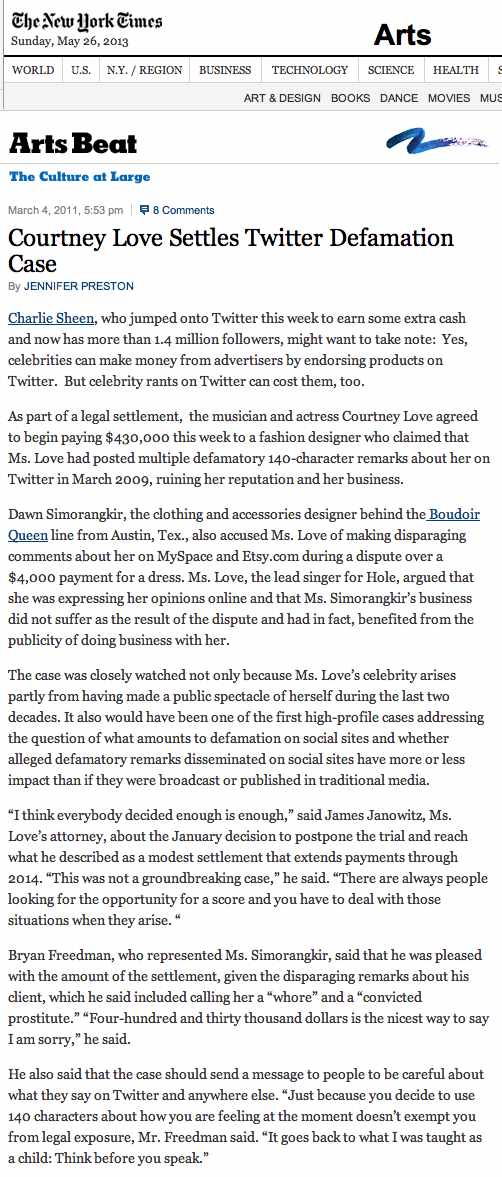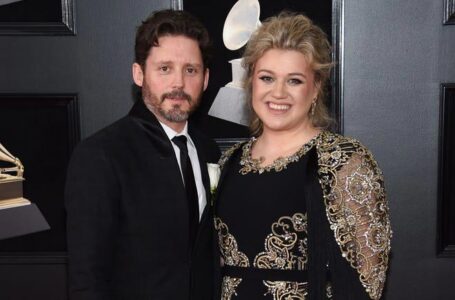Charlie Sheen, who jumped onto Twitter this week to earn some extra cash and now has more than 1.4 million followers, might want to take note: Yes, celebrities can make money from advertisers by endorsing products on Twitter. But celebrity rants on Twitter can cost them, too.
As part of a legal settlement, the musician and actress Courtney Love agreed to begin paying $430,000 this week to a fashion designer who claimed that Ms. Love had posted multiple defamatory 140-character remarks about her on Twitter in March 2009, ruining her reputation and her business.
Dawn Simorangkir, the clothing and accessories designer behind the Boudoir Queen line from Austin, Tex., also accused Ms. Love of making disparaging comments about her on MySpace and Etsy.com during a dispute over a $4,000 payment for a dress. Ms. Love, the lead singer for Hole, argued that she was expressing her opinions online and that Ms. Simorangkir’s business did not suffer as the result of the dispute and had in fact, benefited from the publicity of doing business with her.
The case was closely watched not only because Ms. Love’s celebrity arises partly from having made a public spectacle of herself during the last two decades. It also would have been one of the first high-profile cases addressing the question of what amounts to defamation on social sites and whether alleged defamatory remarks disseminated on social sites have more or less impact than if they were broadcast or published in traditional media.
‘I think everybody decided enough is enough,’ said James Janowitz, Ms. Love’s attorney, about the January decision to postpone the trial and reach what he described as a modest settlement that extends payments through 2014. ‘This was not a groundbreaking case,’ he said. ‘There are always people looking for the opportunity for a score and you have to deal with those situations when they arise. ‘
Bryan Freedman, who represented Ms. Simorangkir, said that he was pleased with the amount of the settlement, given the disparaging remarks about his client, which he said included calling her a ‘whore’ and a ‘convicted prostitute.’ ‘Four-hundred and thirty thousand dollars is the nicest way to say I am sorry,’ he said.
He also said that the case should send a message to people to be careful about what they say on Twitter and anywhere else.
Just because you decide to use 140 characters about how you are feeling at the moment doesn’t exempt you from legal exposure. It goes back to what I was taught as a child: Think before you speak.
Bryan Freedman said.





